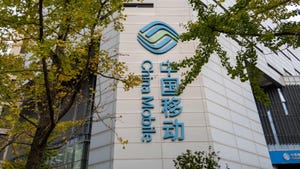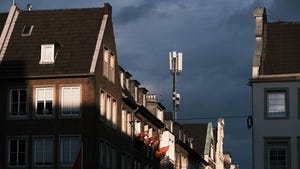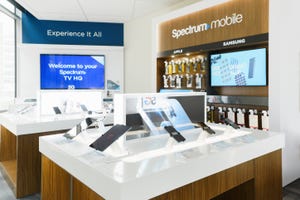'Buy America' concerns subside with Nokia's BEAD announcement
The 'existential risk of the Buy America provisions negatively affecting the BEAD roll-out has been reduced to basically nothing,' said Blair Levin in a note for New Street Research.

Fears about the impact Buy America rules will have on the federal government's Broadband Equity Access and Deployment (BEAD) program appear to be subsiding, thanks to new efforts to increase domestic supply of broadband equipment, as well as the expectation of a limited waiver on the rules to come from the Commerce Department later this month.
To recap, the Infrastructure Investment and Jobs Act (IIJA) that created the $42.5 billion BEAD program also mandated that Buy America rules be applied to federally granted infrastructure projects: a requirement President Biden publicly recommitted to on multiple occasions.
"We're making sure that every community has access to affordable, high-speed internet ... And when we do these projects – and again I get criticized for this but I make no excuses for it – we're gonna Buy American," said Biden in February at the State of the Union address.
That commitment has been a source of angst for broadband industry stakeholders who argue that there is not enough domestic supply of broadband equipment, and that Buy America rules will cause delays to BEAD's rollout and hamstring the program overall.
Those sentiments are starting to shift, however, thanks to an announcement last week from Nokia that it will partner with Sanmina Corporation to manufacture broadband network electronics products for BEAD at Sanmina's facility in Kenosha County, Wisconsin, starting next year. In a press release, Nokia said it's officially "the first telecom company to announce the manufacturing of fiber-optic broadband network electronics products and optical modules" in the US for the BEAD program. The news was announced on location, alongside Vice President Kamala Harris and Commerce Secretary Gina Raimondo.
"President Biden and I are delivering on our promise to strengthen our economy by investing in working people, expanding domestic manufacturing, empowering small business owners, and rebuilding our nation's infrastructure—today's announcement is a direct result of this work," said Harris.
The products Nokia plans to manufacture include optical line terminals (OLTs), OLT line cards, and optical network terminals (ONTs), said the company.
In addition to Nokia's announcement, the Commerce Department also confirmed that the NTIA will release a draft of its Build America, Buy America requirements and limited waiver for BEAD "later this summer" for public comment.
The Nokia news follows other announcements from the White House related to domestic preparation for the BEAD program. That includes both Corning and CommScope expanding fiber manufacturing in North Carolina, and Prysmian converting a copper cable facility in Jackson, Tennessee, to a fiber manufacturing plant.
But Nokia's news is significant because it's the first to address broadband equipment, which is in short supply in the US compared to domestically manufactured fiber, as the NTIA found in its own research on the matter last year, ultimately leading to a limited waiver on Buy America for the Middle Mile program.
One risk down?
In a note for New Street Research (subscription required), Blair Levin, one of several industry analysts and stakeholders who had been warning about the impact of Buy America rules on BEAD, wrote following last week's news that "the existential risk of the Buy America provisions negatively affecting the BEAD roll-out has been reduced to basically nothing," thanks both to Nokia's announcement and the assurance of a limited waiver later this summer.
"The announcement is, in our view, a significant win for the Administration and Nokia in demonstrating the value of the infrastructure and BEAD programs to the public," said Levin. "The combination of the Nokia announcement and the limited waiver should be sufficient to assure all the stakeholders in the BEAD process that the Buy America requirements will not cause a delay for any projects."
Another group concerned about Buy America's impact on BEAD, the Fiber Broadband Association (FBA), said in emailed comments to Light Reading that it supports Build America, Buy America, and that it's looking forward to seeing the NTIA's guidance on the matter:
"We look forward to seeing OMB's final rules, which should drive additional domestic manufacturing of optical fiber and fiber optic cables, and the proposed guidance from NTIA as it relates to electronic and other products that fiber providers will use for the BEAD program," said FBA. "Once this proposed guidance is released, we will meet with our members and then intend to provide comment to ensure the guidance furthers the objectives of the statute and the products can be manufactured cost-effectively so that all eligible locations can receive reliable, high performance – preferably fiber – broadband connectivity."
Still, questions about BEAD's potential costs and rollout remain, even if stakeholders are ultimately satisfied with NTIA's rules on the Buy America matter later this summer.
Those include whether Congress will overturn a rule requiring BEAD participants to pay taxes on their grants, as well as an ongoing push to pass permitting reform at the federal level to help reduce delays to broadband buildouts. Other concerns include the NTIA's letter of credit requirement for BEAD participants, and overall uncertainty about the future of the Affordable Connectivity Program (ACP): a tool to BEAD's success that may soon run out of funding without action from Congress.
[Ed. note: This story was updated on 8/7 at 4 p.m. ET to include a comment from the Fiber Broadband Association.]
About the Author(s)
You May Also Like












